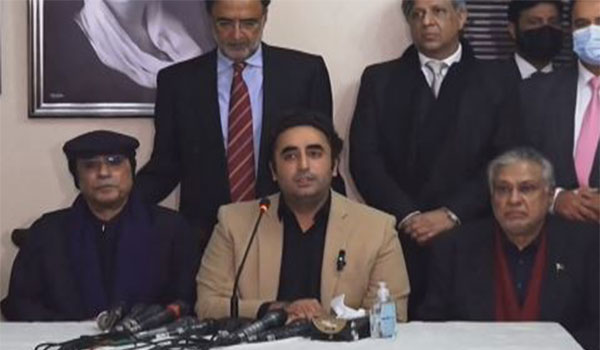Two major Pakistani political parties said on Tuesday that they had successfully brokered a formal agreement to establish a coalition government. The announcement follows ten days of intense negotiations following an inconclusive national election that failed to yield a decisive majority.
The accord between Bhutto Zardari’s Pakistan Peoples Party (PPP) and the Pakistan Muslim League-Nawaz (PML-N), led by three-time Premier Nawaz Sharif, marks the culmination of days of uncertainty and deliberations after the February 8 elections which resulted in a hung national assembly.
During a late-night press conference in Islamabad, Bhutto Zardari said that former premier Shehbaz Sharif, seated alongside him, would be the coalition’s nominee for prime minister. Additionally, he announced that his father, Asif Ali Zardari, would be the alliance’s candidate for the country’s president.
Expressing confidence in their ability to govern, Shehbaz Sharif, the younger sibling of Nawaz, said that their coalition possessed the necessary parliamentary support, including backing from smaller parties.
With 79 seats, PML-N stands as the largest party, closely followed by PPP with 54 seats. Together with four other minor parties, they command a robust majority in the legislature, comprising a total of 264 seats.
The prolonged delay in government formation in the nuclear-armed nation, home to 241 million people, has raised concerns. Pakistan faces pressing challenges, including an economic crisis marked by sluggish growth and record inflation, escalating militant violence, necessitating a stable administration capable of making decisive decisions.
Bhutto Zardari said the parties would push to form government as soon as possible.
As per the constitutional provisions, a parliamentary session must be convened by February 29, following which the process for electing a new prime minister will commence.
(Inputs from Reuters)














